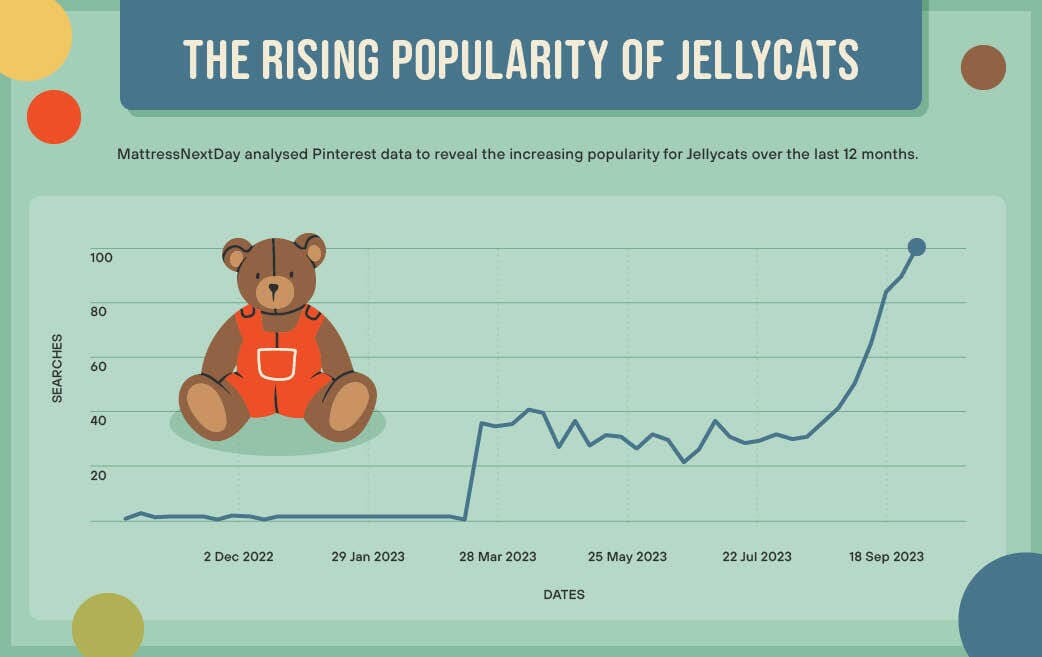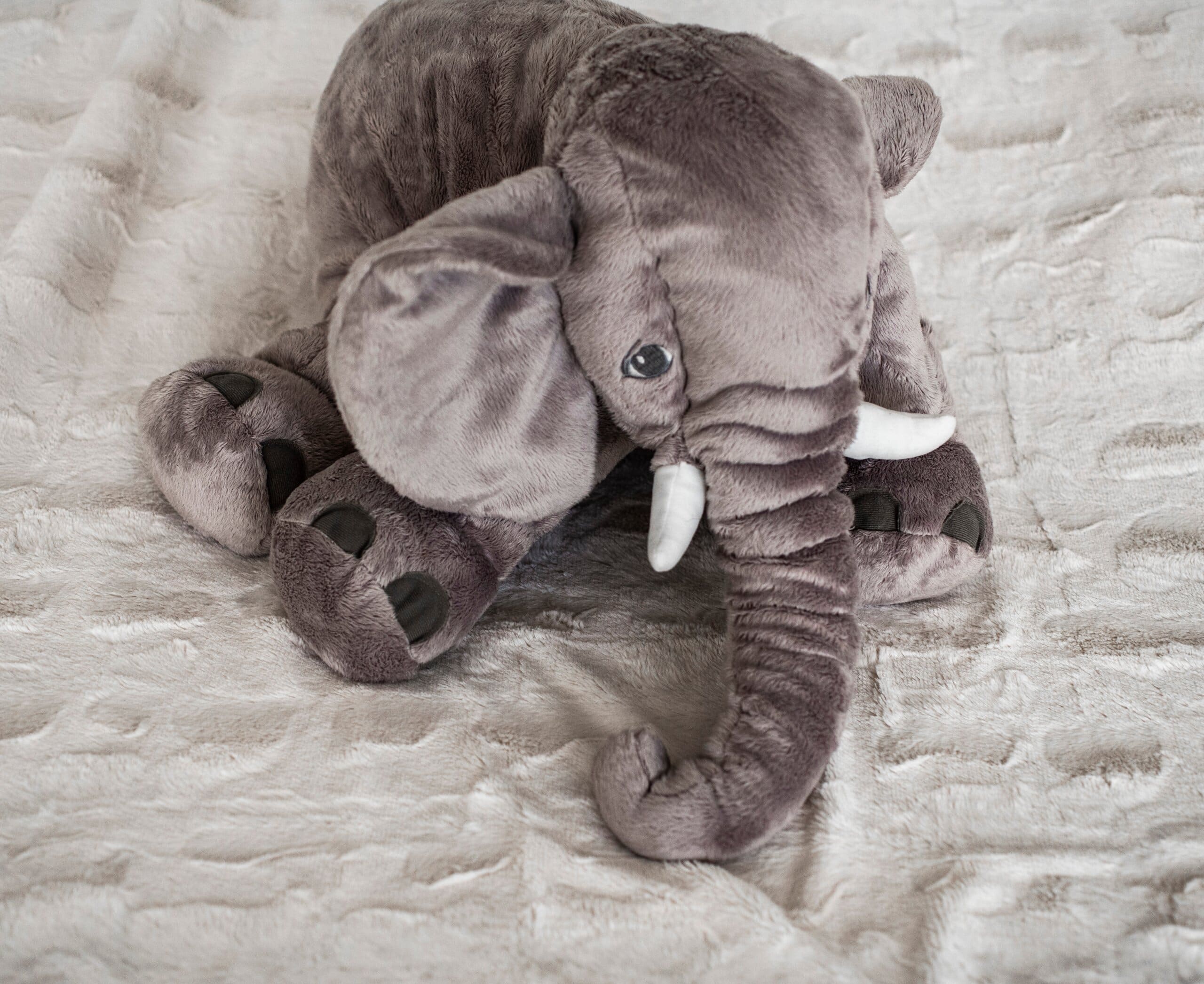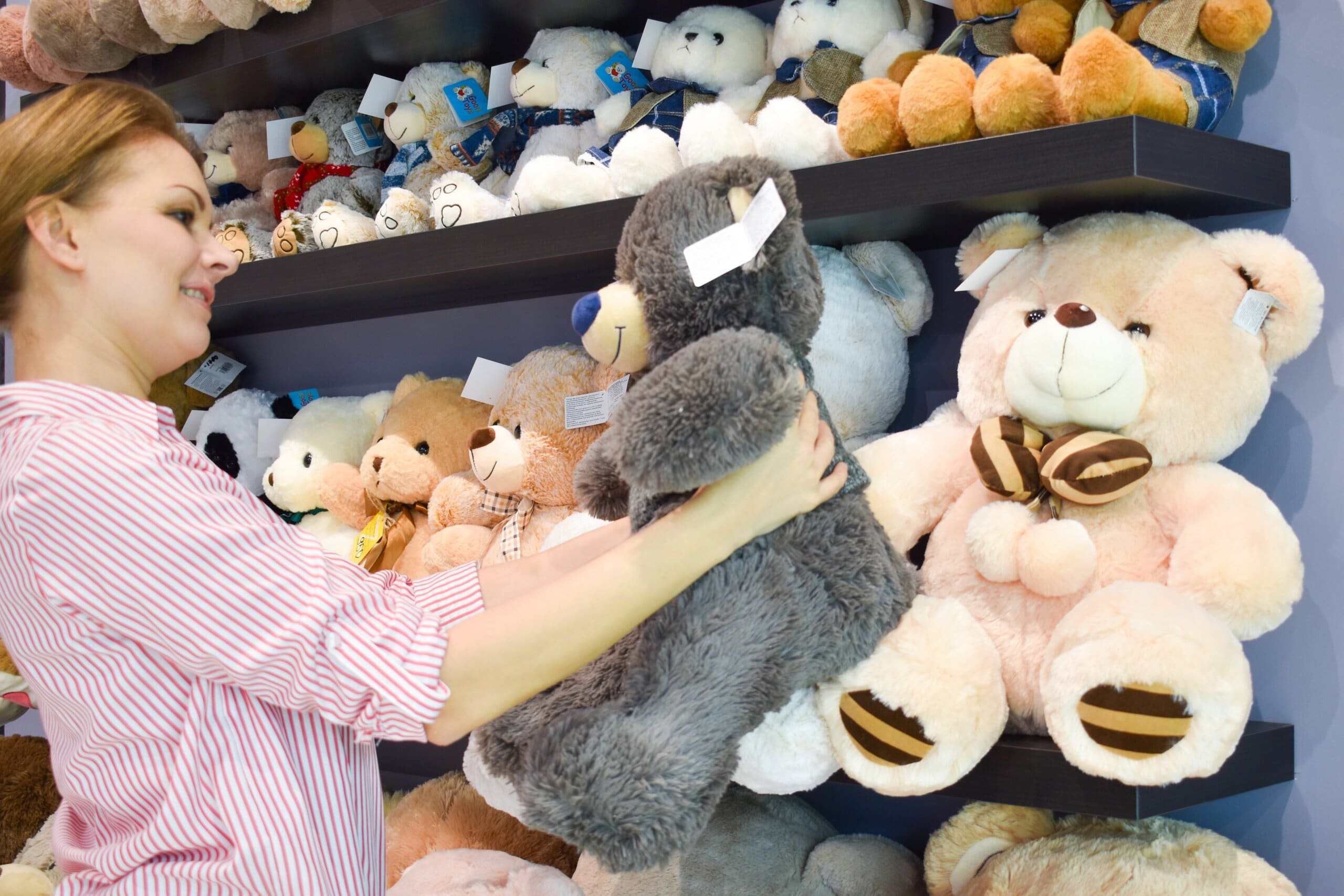Do you remember getting tucked into bed as a child with your favourite teddy or even your comfort blanket? That feeling of comfort, and nostalgia, is one many of us still seek today.
We asked people on Reddit, within the Jellycat community, whether they sleep with their soft toy. The results? A resounding yes.
84% sleep with their soft toy every night
84% of the total people who responded said they sleep with their Jellycat every night, with some going as far as to say they couldn’t sleep without it! Only 16% said their toy was too precious to be, potentially, damaged from sleeping.
In the last three years, searches for Jellycats have risen by 123%. On Pinterest, interest in soft toys reached its highest peak this year. 70% of that interest on Pinterest comes from those aged between 18-24, showing how Gen Z are driving the demand for taking their soft toys into adulthood.

And on TikTok, videos of Jellycat teddies boast over 739 million views. Those aged 18-24 were responsible for 85% of video views for Jellycats, with 1 in 10 from those aged between 25-34 and 1 in 20 from people aged 35+, showing this trend of taking toys to adulthood spans many generations.
It might not just be nostalgia that is making so many opt for soft toys. Did you know that sleeping with a teddy or a comfort blanket can actually improve your sleep?
Counsellor reveals why so many find teddy bears comforting
We spoke to Georgina Sturmer, Counsellor MBACP, to discuss some of the reasons that people still sleep with their soft toys and teddy bears as an adult. She explained:
There’s something about the calming and comforting power of touching something soft. Cuddling or stroking a toy can reduce stress levels in a similar way to stroking an animal. We often hear people talk about an epidemic of loneliness, as we become more isolated from one another. A soft toy or teddy bear can offer us a sense of connection or companionship, which we might crave. We might feel understood, or heard, by a soft toy, even if they are inanimate objects. They might witness us during our most difficult moments.
6 unexpected benefits of having a teddy as an adult
There is also scientific-based research on the power of a soft toy.
1. Hugging a soft toy can reduce your stress levels
There is power in a hug. Researchers believe that hugging can boost Oxytocin - also known as the love hormone - and can reduce stress levels. The same results can be seen in hugging your soft toy.
One study demonstrated that physical contact with an inanimate object - such as hugging a soft toy to sleep - reduced cortisol levels (or our stress hormone) in the body.
Cortisol is produced by the network hypothalamic pituitary adrenal (HPA) axis. Cortisol follows a 24-hour cycle, peaking at around an hour after you wake up and dropping to its lowest point at night - when you settle in to sleep. However, if you have high cortisol levels, you are more prone to sleep disorders.
Researchers have found that if the HPA is active and producing cortisol, it can disrupt your sleep and cause insomnia. Stress is one of the main causes of insomnia, which refers to trouble falling asleep, staying asleep and feeling tired the next day.
Insomnia can last from days to months and even longer so if you feel high levels of stress before going to bed, you should look at ways to alleviate that stress - potentially by indulging in a soft toy.
2. Cuddling a soft toy provides comfort when sleeping
We’ve all heard of comfort blankets, but soft toys and stuffed animals can also provide that same sense of comfort. A 2016 study tested this theory to discover how soft toys can help, finding that the participants felt more comfortable when handling the teddy.
If you are comfortable, you’ll sleep better - there’s no doubt about it. Your body’s stress levels will reduce and your brain will understand it is time to relax and, of course, sleep. People sleep better if their bedroom is optimised for comfort and a soft toy can help you do just that.
Georgina Sturmer, Counsellor MBACP, also agreed, saying:
Comfort is important for relaxation. If we struggle to relax or to fall asleep, then we can be proactive about setting the scene for comfort. This might involve our interior decisions or our choice of bedding, but it can also involve opting for a soft toy or teddy bear. Even if there might be social expectations that these items are for children. Soft toys or teddy bears can evoke calm memories for us, even if they are brand new. They might remind us of when our lives were simpler and less overwhelming. When we were looked after by someone else. When we had a specific ‘bedtime routine’ that was designed to help soothe us into sleep. Or they might have provided us with a safe haven when we were growing up, even if life was difficult.
3. Touching the material of a teddy can prove soothing
Typically, teddies are made from soft, cuddly material. This can provide additional comfort when sleeping. Psychotherapist and anxiety expert, Kamalyn Kaur, agreed, saying soft toys can provide “sensory comfort where individuals may find certain materials or textures of soft toys soothing."
Similarly, “adults with sensory processing disorders or autism may find soft toys can aid with self-regulation and reducing anxiety.”
4. Your soft toy can become part of your bedtime routine, signalling it is time to sleep
It’s incredibly important to set a consistent bedtime routine that helps to signal to your brain when it is time to sleep. A study of children found that a consistent routine helped reduce the time spent trying to fall asleep and, subsequently, helped them sleep longer. This consistent schedule is still seen years later in sleep quality.
To establish your new bedtime routine, keep your soft toy in your bedroom, ideally, in your bed - where you associate sleep - and try to only use it when you are attempting to sleep or in times you need rest for that all-important association with sleep.
You could also spray your teddy with a scent that can help you sleep. Lavender acts as a natural sedative and helps lull you to sleep. Other scents that can help you sleep include neroli and chamomile, which can help improve overall sleep quality.
5. Weighted stuffed animals can reduce anxiety when trying to sleep
Weighted blankets essentially replicate the feelings of a hug. You can get a similar pressure from a weighted stuffed toy, which can calm your heart rate and breathing, thus reducing the stress hormone, cortisol, which prevents you from sleeping.
6. Soft toys can evoke positive memories from your childhood
Do you remember your favourite toy from childhood? According to Psychotherapist Kamalyn, “Many adults can have fond childhood memories of soft toys or teddy bears. Reconnecting with these objects can evoke a sense of nostalgia and provide a source of comfort.”
She also stated that “Loneliness and Isolation, especially during the COVID-19 pandemic, could no doubt have led to some adults seeking comfort from soft toys or teddy bears that can generate feelings of comfort and reassurance that are connected to our childhood.”

Since our introduction to Molly Mae’s Ellie Belly teddy on Love Island, more celebrities have shared their love for soft toys.
Famous faces and their teddy bears
Teddy bears and soft toys can help you sleep, and it appears these celebrities have received the memo.
Hollywood actress, Margot Robbie, shared during an interview that she sleeps with a stuffed bunny each night although, admittedly, the toy is looking a little worse for wear as she ages.
Singer Justin Bieber has showcased his collection of soft toys at his home on Instagram. Similarly, American singer, Carrie Underwood, also has her own soft toys and is said to never leave for a tour without them!
Soft toys are also for royalty, with King Charles favouring a childhood teddy bear; one he has had since childhood. According to a royal author, King Charles is said to be so attached to his teddy that he travels with it everywhere. The author also claimed that any damage to the teddy could only be fixed by Charles’ old nanny.
How to pick the perfect teddy bear
Understandably, you might be on the lookout for a soft toy - certainly after reading how they can help you sleep. With that in mind, we are sharing how to pick the perfect fluffy companion for your sleep.
1. Opt for a weighted animal if you feel anxious when trying to sleep
As mentioned, weighted stuffed animals work in very much the same way as weighted blankets. The deep pressure stimulates the feeling of a hug and can help keep you calm while trying to sleep. Weighted stuffed animals are also much easier to transport than a heavy blanket, should you feel anxious sleeping somewhere other than your own bed.
2. Think about the perfect toy to improve your comfort levels
If you are going to cuddle up with a toy, you need to choose the right material. Think soft, plush materials that are comforting to touch. However, you should also consider the type of material and how easy it is to clean. For instance, natural wool is much harder to wash than other materials due to how delicate the material is.
3. Choose the right size for your soft toy
You don’t want your soft toy to be too small but also not too big. When sleeping, it’s important you keep your spine and neck aligned to reduce any pain you might get from sleeping in a position that doesn’t support them. So cuddling something too small or too large could potentially affect your ability to sleep.
Ideally, you want a toy that can fit comfortably in your arm or by the side of your head that doesn’t move your neck or spine out of alignment.
4. Choose a material that is durable
You are going to be cuddling your toy every night, so it needs to be durable. With that in mind, choose one that isn’t going to wear easily and, as mentioned, one that can be machine-washed so you can keep on top of its cleaning schedule.

But remember to wash your teddy bear every fortnight to keep bacteria at bay
Your teddy, especially if it sleeps next to you or cuddled up against you, will pick up all sorts of bacteria, sweat and dead skin. Soft, teddy-like materials can become a breeding ground for bacteria, especially if you dribble on them during the night! When left damp, bacteria can continue to grow, and the same can be said if you keep your teddy under the duvet and don’t air it out every day.
One study found that teddy bears can, in fact, be contaminated with pathogens associated with food poisoning and that three out of four soft toys do not get washed after a child is ill.
As a good rule of thumb, try to wash your soft toys once every two weeks - particularly if you sleep snuggled up to the teddy.
If you rarely sleep with the teddy but keep it in your bed as a source of comfort, you could wash the toy once every month. If you have a teddy with a harder cover, you could make sure to give it a wipe-down every two weeks.
If you do suffer from anxiety and struggle to sleep, read up on our tips for how you can better manage sleeping with anxiety. You might also be interested to check out some of our other sleep tips, including how to sleep during a full moon as well as everything you need to know about sleep cycles.
Methodology:
Data taken from Pinterest and TikTok 16th October 2023.





